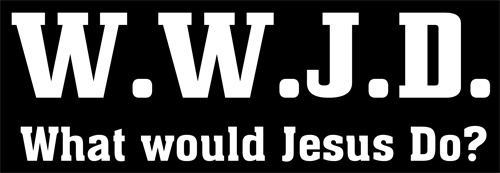Your God is too small. Let me say that again. I don’t want you to miss it. Your God is too small. Now, while you are mulling over this pronouncement, let me offer a little perspective: My God is too small, too.
I learned the prayer as a child. Come on; fold your hands with me. Bow your head and let’s pray together, “God is great. God is good. Let us thank him for our food. By his hands we all are fed. Thank you God for daily bread.” Or, as my nephew first uttered it, “God is grape. God is good. Let us spank him for our food. By his hands we are fed. Thank you God for jelly bread.” Either way works, right? God is great.
From our earliest moments, we are instructed that there is something greater, bigger, better than us and everything else in creation. There is something higher than the highest mountain. There is something larger and brighter than the sun. Talk about the vastness of the oceans, but remember there is something even grander. We might write poetry or songs proclaiming the depths of human love and devotion, yet we are taught that, as rich as human love may be, there is divine love that is even more so. We learn that a mother’s love is endless and yet, God’s motherly love is finer, more complete. Adults read us stories about a father’s devotion and sacrifice and then quickly yield that the only perfect Father is in heaven. God is great, grand, expansive, larger than – well, anything else. For the child, God is magical, amazing. God can – at any moment – do anything and will always do the right thing.
Then something happens to us, something perfectly appropriate. We begin to grow up. The simple interpretations of what it means for God to be good and great fall apart. If God is good, then why is there so much suffering in the world? If God is great, all powerful, why doesn't God do more to change the world for the better? Then, as we grow and begin to answer these questions, we develop adult thoughts and ideas – we develop explanations and interpretations for our ideas. We begin to theologize and canonize our thoughts. We adopt religion. It is a good thing, really. We need to understand and agree on the answers. We seek common truths. We find comfort in the agreement of likeminded people. We become Baptists, and Methodists, and Catholics and Jews and Muslims and Hindus and … our God becomes the God of our religious choice, our God becomes the God of our particular faith, our God becomes small.
Here’s a true story, attributed to the Buddha. (I know it’s true even if it didn't really happen.)
A king has the blind men of the capital brought to the palace, where an elephant is brought in and they are asked to describe it. When the blind men had each felt a part of the elephant, the king went to each of them and said to each: “Well, blind man, have you seen the elephant? Tell me, what sort of thing is an elephant?"
The men assert the elephant is either like a pot (the blind man who felt the elephant’s head), a winnowing basket (ear), a plowshare (tusk), a plow (trunk), a granary (body), a pillar (foot), a mortar (back), a pestle (tail) or a brush (tip of the tail).
The men cannot agree with one another and come to blows over the question of what the elephant is like, and their dispute delights the king. Then, as the story is told, the Buddha ends by comparing the blind men to preachers and scholars who are blind and ignorant and hold to their own views:
"Just so are these preachers and scholars holding various views blind and unseeing.... In their ignorance they are by nature quarrelsome, wrangling, and disputatious, each maintaining reality is thus and thus."
The human dilemma is that we grow comfortable knowing what we know and doing what we do. Over time, both for us as individuals and for us as denominations, we stop seeing anew and stop asking questions in order to learn. We walk around blind to the totality of God, Why? Part of it is that we just can’t understand it all. God is great, immense, and infinite. Remember. Imagine the story again, but this time, without the King – without anyone who can see and without anyone who really knows what an elephant is. How long would it take for the elephant to be understood? Such is our dilemma today. Some of us are holding on to an infallible scripture. Some of us are touching equality of genders, sexual preference, and race. Some of us are grasping a piece of it that feels like inclusiveness. Some of us are holding fast to a particular language, or translation. We have some very good clues as to the size and makeup of this Divine beast, but in truth we are probably still piecing it all together.
What’s the solution? I don’t believe there is a single solution. There are some things we can do. We can begin by listening to people of different beliefs. We can begin by setting aside fear that considering something new and different to us will certainly be our downfall. We can begin by realizing that it isn't necessary for everyone to believe exactly as we do. We might just be “seeing” things from a different perspective. Most importantly, we can begin by simply accepting (this one isn't easy) that we don’t have the entire picture ourselves – that our particular view of God, no matter how dear and delicate – is a view of God that is too small.




